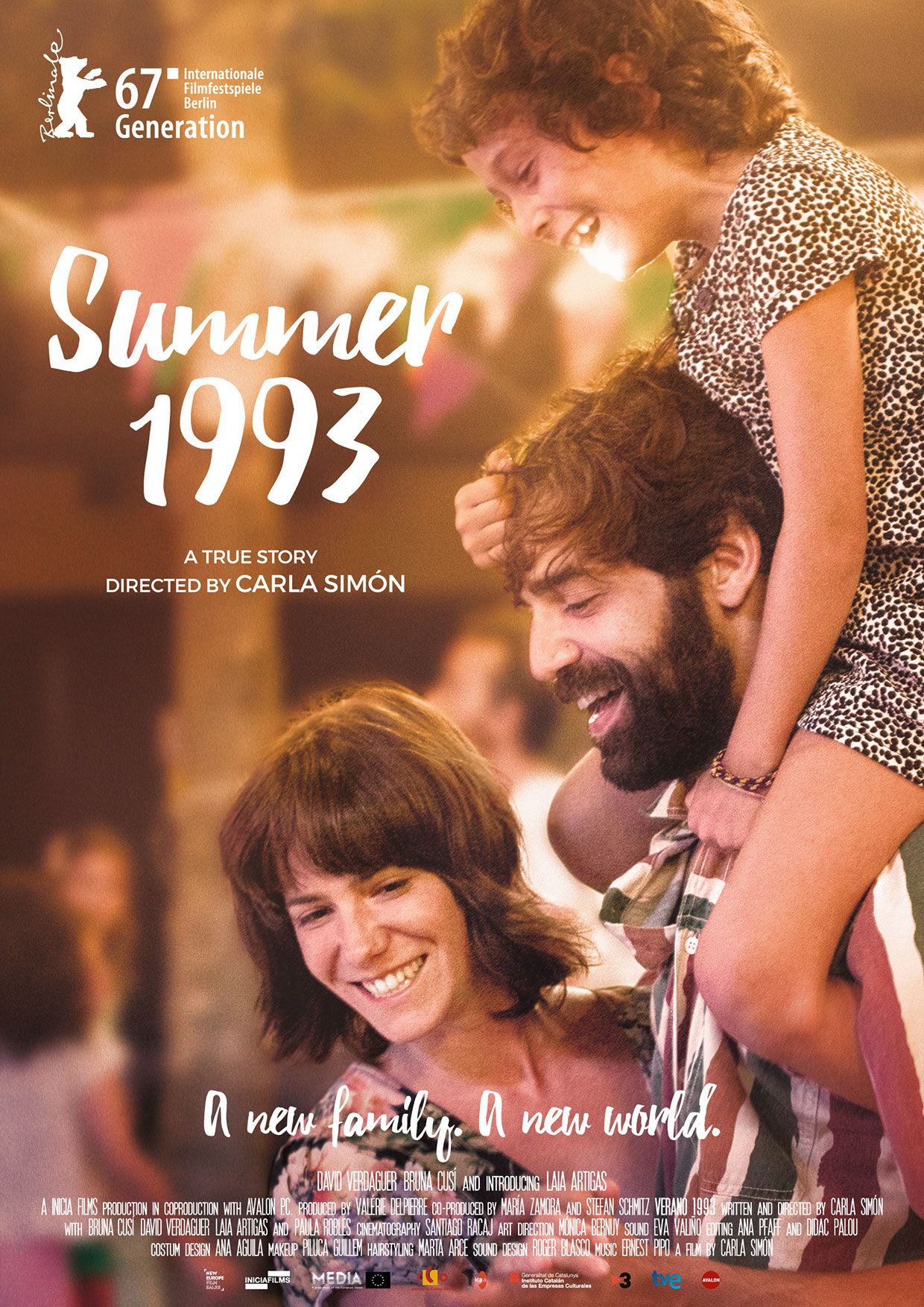Film Review: Summer 1993 (2018)



Often when a film is made from a child’s perspective, we’re shown worlds full of wonderment and imagination. Whether it be as a coping mechanism, allegory, or simply for the purposes of adventure, it’s almost inevitable that at least a marginal level of the unreal will manifest at some point in a film about children. Carla Simón’s debut feature Summer 1993 is not one of these movies. In fact, it’s the most realistic portrayal of how children act and cope as I have ever seen. It’s also very tricky and clever, never stooping towards the easy tear-jerking moments one might expect from a movie like this. If Summer 1993 had been made in the U.S. for a major studio, we’d be looking at a rehash of My Girl (1991), or something like it. But, since it’s an indie from Spain, I’m happy to say we get so, so much more. More realism, more heart, and more honest, earned emotion.

Summer 1993 is a coming of age story, but not exactly in the traditional sense. It doesn’t come right out and tell you what it’s about, choosing instead to offer small clues until all is revealed. Where is Frida (Laia Artigas) going at the beginning of the film and why? These aren’t her parents, so who are they? It seems important that she see a doctor – why? These questions and more are asked and eventually answered, but never directly. They are carefully paced out over the course of the film so that, by the end, Frida’s cathartic release is the furthest thing from forced or strained. It’s damned real, and it’s both emotionally uplifting and heartbreaking at the same time.

Frida, who is six years old, is talked about as if she isn’t there or couldn’t possibly understand what’s going on. Her age restricts her from actively participating in the course of her young life, but she hears everything. What’s so heartbreaking about Summer 1993 is that no one realizes until the end of the film that what she needs most is to simply be spoken to and listened to. No one stops to consider that she may have questions about her circumstances and that by answering them, she can begin to heal.

Simón continually sets her film up for tragedy but pulls back the reigns time and again. We, as American moviegoers, have been trained to brace ourselves for these types of moments. We expect our characters to endure trauma in all the anticipated ways and can usually see it all coming from a mile away. What’s so remarkable about Summer 1993 is that we are denied the disasters one after the other. We don’t get to settle into comfortable melodrama – we are forced to work through Frida’s trauma with her.

Laia Artigas and her young co-star, Paula Robles (as Frida’s 4-year-old cousin Anna) are absolutely spectacular. Watching them play house together and understanding their dynamic is a pure delight. Simón places the children at the center of the story, but they are powerless to affect it. They meander through the summer playing games, with Frida often acting out with petty cruelties towards Anna. Their guardians (Bruna Cusí and David Verdaguer) aren’t neglectful, uncaring, or sadistic (as one might half expect), and they do their best to love and care unconditionally under trying conditions. They are as real as the children, and their performances are wonderfully gentle and relatable.

The climax of Summer 1993 may not be typical (there’s no explosions, big reveals, or twists) but it’s one of the most affecting this year. Some may not get it, but for those of us with young children, or those who remember what it was like to be small but filled with big, complicated emotions, it will hit you right where it’s supposed to. What’s best is that it’s not manipulative in any way. As I said, it’s earned, and what makes it that much better is the realization that it’s the one thing Frida needed to do the entire film but never did.
